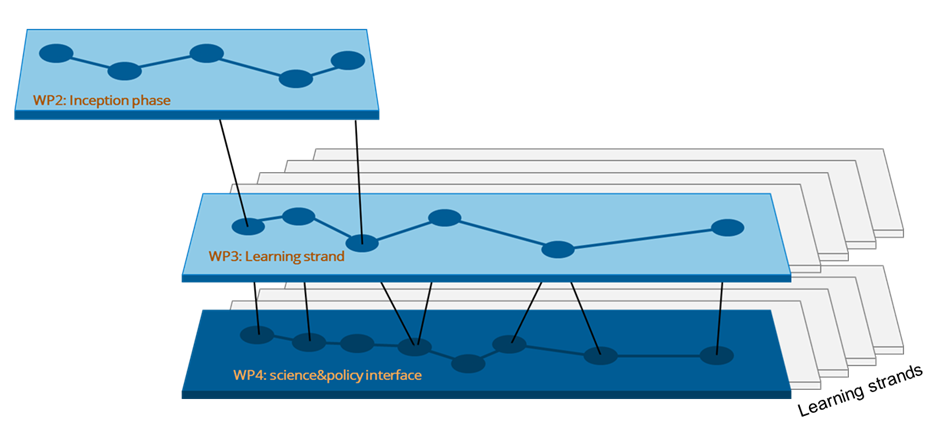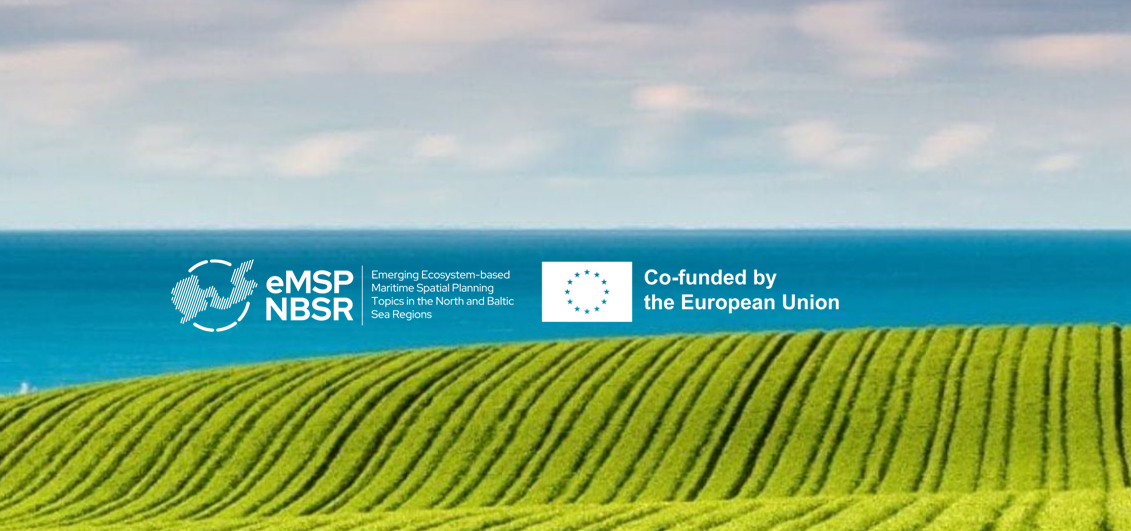Implementation
Project implementation

Project inception phase (months 1-6)
The key of the inception phase is to provide a working frame for five project learning strands by examining the existing MSP context in the North and Baltic Seas in order to substantiate and guide the work within the learning strands. It will also serve to build the necessary relationships with the stakeholders outside the MSP community in particular with business associations, NGOs, associations of local and regional authorities from both sea basins. Furthermore, it will create a common understanding of the overall climate challenges in the North and Baltic seas.
These activities will ensure a mutual understanding of each targeted learning strand at the start of the project. They will create a basis for a shared vision on how to address these grand challenges and how to tackle different tasks and form the thematic learning strands. Moreover, how and which stakeholders to engage from the NGO, business and governance realms.
Learning strands within the Community of Practice (CoP)
The project is built around a Community of Practice (CoP) model, which is based on creating forums for policymakers, practitioners and researchers to discuss important MSP developments in key thematic areas. Activities to be conducted through the CoPs will enable maritime policymakers and professionals to adequately address future challenges in the maritime environment by improving the design, implementation and monitoring of Maritime Spatial Plans, and using the best available knowledge from science and innovation. It will make knowledge on the five key emerging topics or project learning strands addressed by two cross cutting issues – climate change and EU Green Deal:
- Ocean governance;
- Ecosystem-based approach;
- Sustainable blue economy;
- Monitoring and evaluation;
- Data sharing, information and communication technology serving MSP.
The CoP teams will use the inception phase to identify their learning questions, necessary knowledge and scientific experts and identify the opportunities to connect to the European Green Deal. Furthermore, each learning strand will make a GAP- analysis for CoP policy issues, CoP teams also prepare stakeholder engagement strategies and determine whether there are case studies that can contribute to more streamlined MSPs in the North Sea and Baltic Sea. Learning questions are worked out and answered in such a way that future MSPs can be further developed accordingly.
Science Policy Interface and Policy Governance Implications
Work in the project is facilitated by science and policy interface running along the entire project time and through a group of scientists, closely linked to project work at two levels (1) as scientific co-facilitators of thematic learning strand work in the CoPs and (2) through a project scientific advisory board (SAB) meeting regularly throughout the project assuring the scientific reflection link across groups and over time.
Scientific point of view will help to establish the methods and how the different thematic learning strands best can feed in learning into subnational, national and international processes. The overall learning valid for marine planning and management in other EU Member States along the North and Baltic Sea and beyond will be distilled into policy briefs or other appropriate types of products to for specific target groups (e.g. story maps, interactive web documents, interactive videos).
More information: https://www.emspproject.eu/
